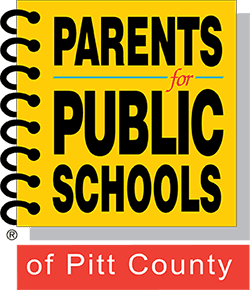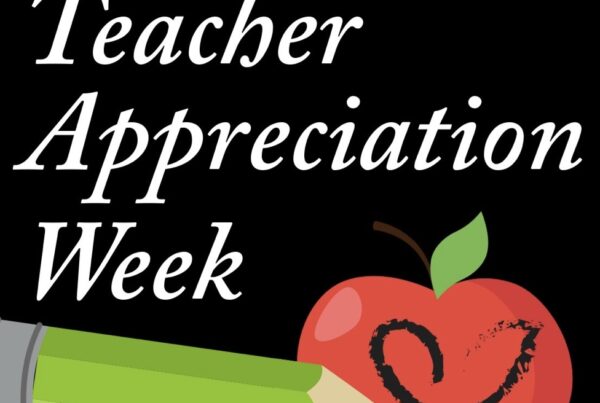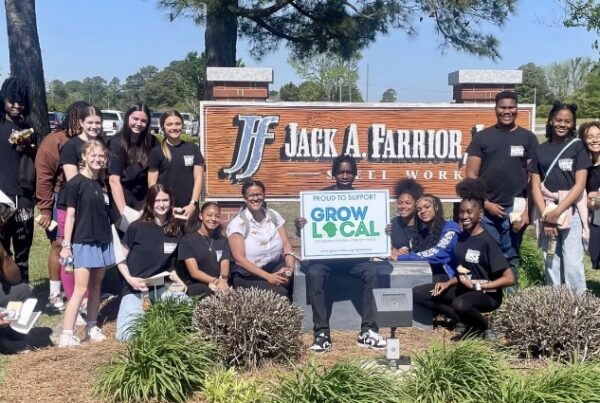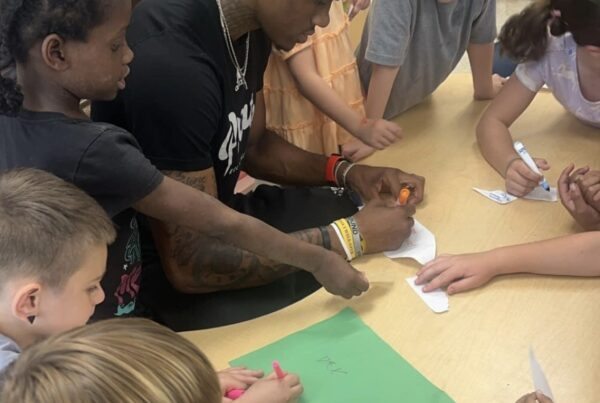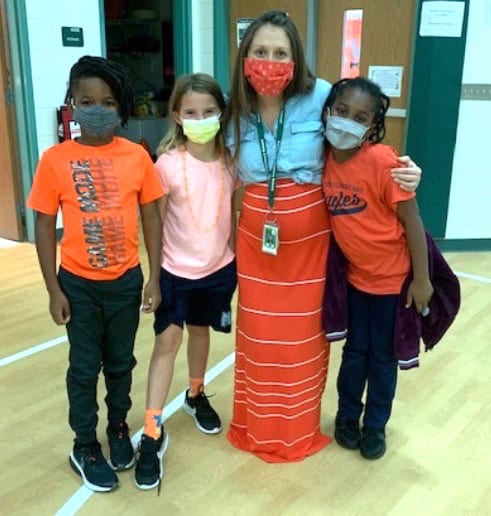
Schools across the country will find many ways to raise awareness of preventing and reporting bullying this month. We had the opportunity to talk with Nicole White, School Counselor at Eastern Elementary. She told us about some great activities happening at the school this month!
PPS-PC: October is Bullying Awareness Month in America. It sounds like Eastern Elementary is celebrating the month by focusing on characteristics such as kindness and friendship. What types of activities are happening this month that promote those concepts?
Ms. White: This month at Eastern Elementary we are celebrating how to be a buddy and not a bully. We are hosting an annual anti-bullying walk in our PE classes to help promote the use of kindness in our school. Our staff intends to bring awareness to the negative impacts of bullying and discuss what a good friend looks and sounds like. We are working with teachers to implement activities in morning meetings and throughout the day to teach tolerance, compassion and acceptance. We talk to our students about the fact that it is okay to be different (that is what makes us special and unique) and how it is not okay to make fun of or harass someone if they are different. My co-counselor and I are also teaching guidance lessons this month about conflict resolution strategies to help students identify their emotions, come up with a toolbox of coping skills, pinpoint problems, and brainstorm solutions with their peers. The goal is for students to be able to confidently and positively solve their own problems!
PPS-PC: What would you say is the benefit to promoting these positive characteristics as a strategy for decreasing other more negative characteristics?
Ms. White: Promoting a culture of kindness throughout our building allows us to holistically approach each and every student in a way that enables them to be successful in social interactions, academic endeavors, and career development. Interweaving kindness into our day-to-day schedules allows students to learn and utilize the skills necessary to build strong foundational relationships with their peers and adult staff members. These strong, positive relationships empower our students to feel valued and appreciated for who they are as unique individuals and what they contribute to not only our school but our community as a whole. These foundational interpersonal skills encourage acceptance of others and tolerance of ideas, traditions, and cultures that may be different than their own. This is critical for the development of the whole-child and the success of our students not only today but also as they grow and become leaders and stakeholders in our community.
PPS-PC: What are a few actions students can take to promote a culture of kindness in their school all year long?
Ms. White: Students can greet their peers and take the time to check in with them to ask them how they are doing. These small steps promote a culture of kindness every day and all year long. Small acts of kindness, like a compliment, go a long way. We are teaching students to be proactive in their efforts to be kind to others and we discuss how it can easily start a chain reaction. At the elementary level, we talk a lot about being a bucket filler (doing or saying something kind for someone else and then reflecting back on how it made us feel). Students can also show kindness and respect to their surroundings by taking pride in their classroom and school by keeping it clean. We encourage students to be open, honest, and empathic during morning meeting share time. Students can use active listening skills and eye contact when their peers are sharing to promote tolerance. Nothing says “I feel heard,” more than someone really listening.
PPS-PC: What would you recommend parents do if they feel like their child is not being treated well by other students at school?
Ms. White: When a child opens up to you about being treated badly by other students at school, create ways for them to feel safe sharing with you. Focus on listening and emphasizing when they discuss how they feel and be open to using a problem solving mindset. Make sure they understand the difference between unkind behaviors and bullying; teach them to stand up for themselves and feel empowered to handle such issues in non physical ways using their interpersonal skills to solve problems. Teach them to share with their teachers how they are feeling as well. We believe open lines of communication with school personnel is also important; when parents feel like their child is not being treated well by other students, reach out! An unreported problem could be an unknown problem. Start building those relationships now with your child’s teachers, school counselors, and administration and reach out as soon as you feel there is a problem. We can work together as a team to help students feel safe and loved at school.
